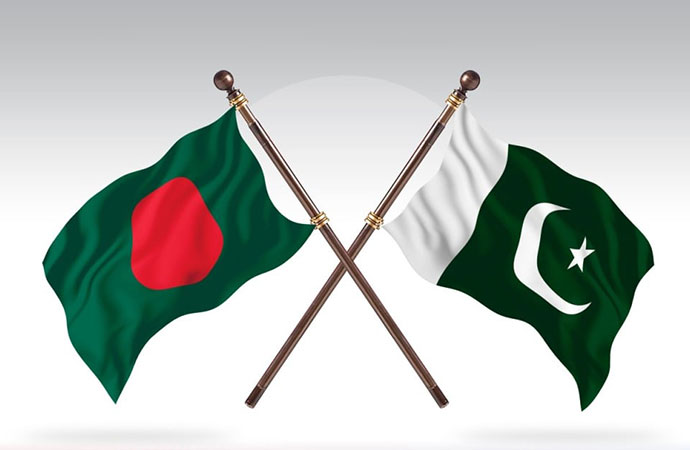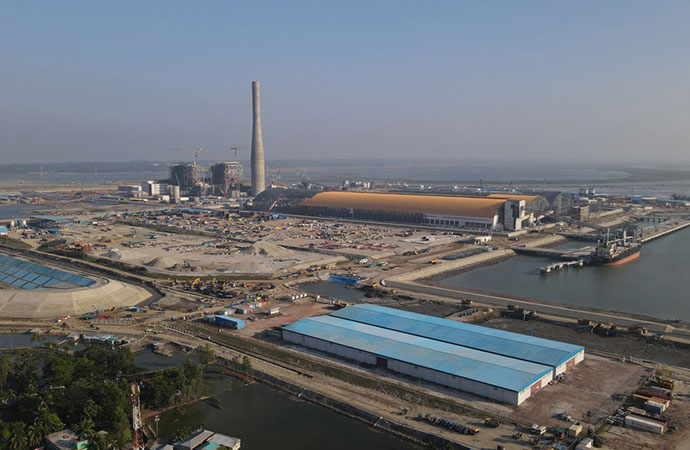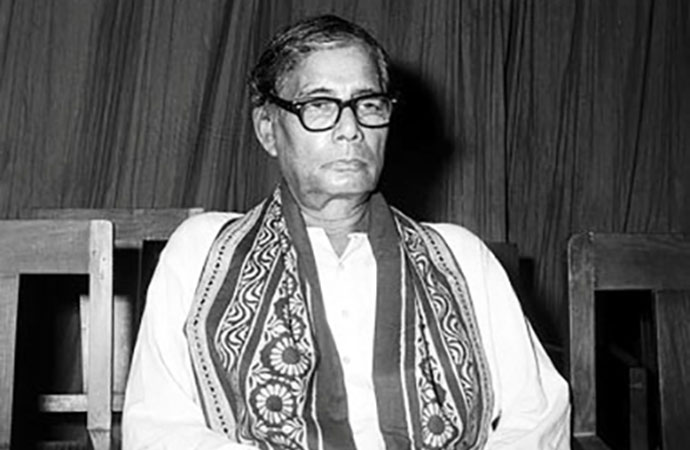Column

Image: Collected
In 1974, Pakistan's prime minister Zulfikar Ali Bhutto while visiting Dhaka regretted the Liberation War which established Bangladesh in 1971. In 2002, Pakistan's president Pervez Musharraf also expressed regret for the Liberation War during a visit to Bangladesh. Despite a robust military and strategic relationship that evolved between the two former enemies, relations with Pakistan are haunted by the outstanding unresolved issues of 1971.
Pakistan's mere expression of regret for the breakup of the country does not qualify as a sincere acknowledgement of the war crimes suffered by the people of Bangladesh. Pakistan has never accepted formal liability. Pakistan has to recognize the need for reparations arising out of internationally wrongful acts that were committed under its jurisdiction in 1971.
After World War II, Germany paid billions of dollars in war reparations to countries which were formerly administered by the Third Reich. Italy paid several hundred million dollars in reparations to countries in southeastern Europe and Africa. Japan disbursed an estimated US$1.5 billion in reparations to countries in East Asia that were occupied during World War II.
Fifty-four years have passed since the war which broke up East and West Pakistan and established Bangladesh in 1971. As the successor state of East Pakistan, Bangladesh has demanded a series of formal reparations from the Pakistani state, including a formal recognition, acknowledgement and apology for genocide; compensation from the value of assets and foreign aid to which East Pakistan was entitled; the division of assets; and the repatriation of Stranded Pakistanis. Bangladesh's demands are grounded in international law.
Pakistan has avoided the question of a formal recognition of genocide. The financial constraints of the Pakistani state are currently precluding Islamabad from paying billions of dollars in war reparations to Dhaka. Moreover, Bangladesh's economy has overtaken Pakistan's economy as the second largest economy in South Asia. During the recent visit of the Pakistani foreign minister to Bangladesh, Dhaka raised the issue of war reparations once again and asserted its demand. A press release from the Bangladeshi foreign ministry stated that "Regarding the long outstanding historic issues including a formal apology for the genocide committed by Pakistan in 1971, division of assets, transfer of foreign aid that was meant for the cyclone victims of 1970, repatriation of Stranded Pakistanis, Bangladesh called for their early resolution in order to establish a solid foundation for enduring and forward-looking bilateral relations".
A negotiated resolution would be the best course of action. Pakistan and Bangladesh should begin a process of negotiating the reparations which arise from the breakup of the country. Negotiations can be supported and overseen by an international court or tribunal. The Foreign Affairs Advisor Touhid Hossain remarked that "We want an accounting, which is a financial solution. We want them to express regret and apologize for the genocide. We want them to take back the stranded people".
Pakistan has been a state party of the Genocide Convention since 1957. The war in 1971 came under the purview of the Genocide Convention. Bangladesh acceded to the Genocide Convention in 1998, with a reservation concerning Article 9 that any lawsuit before the International Court of Justice (ICJ) involving Bangladesh should be submitted with the consent of parties. Dhaka and Islamabad can potentially agree to adjudication by the ICJ on the matter of resolving outstanding issues from 1971, including war reparations.
The DRC vs. Uganda case saw the first determination of war reparations by the ICJ. The court laid an emphasis on reparations primarily through negotiations. The violations of international law which occurred in Congo took place many years before the case was concluded. As the violations took place more than 20 years before the case was settled, the gathering of evidence was extremely difficult. The DRC claimed US$11.3 billion in compensation from Uganda, including claims related to personal injury, damage to property, damage to natural resources, and macroeconomic damage. The court decided to award US$325 million in compensation on the basis of causation and equitable principles. The court took into account the financial capacity of Uganda as the respondent state. The court devised a timeframe for the payment of reparations through annual instalments.
In determining the Reparations Judgment in 2022, the ICJ applied the Chorzow Factory standard from the jurisprudence of the Permanent Court of International Justice; as well as the International Law Commission's Articles on State Responsibility. According to customary international law, a state is liable to deliver full reparation for injury caused by an internationally wrongful act. The court set out a three-part sequence for evaluating reparations, including distinguishing between different situations during the conflict in eastern Congo; analyzing the required causal nexus between Uganda's internationally wrongful acts and the injury suffered by Congo; and examining the nature, form and amount of reparation. The court refrained from delving into moral damages or reparations of a punitive character.
The ICJ provided a global sums compensation in the DRC vs. Uganda case. The court examined the global sums practices adopted by tribunals in other cases, particularly the Ethiopia-Eritrea Claims Commission. The ICJ previously dealt with reparations in the Corfu Channel case between the United Kingdom and Albania, the Diallo case between Guinea and DR Congo; and the case concerning certain activities by Nicaragua on its border with Costa Rica.
In the context of Bangladesh and Pakistan, five decades have passed since the war in 1971 which gave rise to the unresolved issue of reparations. Outstanding issues between Bangladesh and Pakistan can be settled amicably if there is political will in both Dhaka and Islamabad.
Umran Chowdhury is Assistant Editor of the Dhaka Courier and a Research Associate at the Cosmos Foundation and Bay of Bengal Institute.

























Leave a Comment
Recent Posts
Religion and Politics: A Toxic ...
At Dhaka University, cafeteria workers have been told not to wear shor ...
Enayetullah Khan joins AsiaNet ...
AsiaNet’s annual board meeting and forum was held in Singapore, ...
In a New York minute
Many leaders back a UN call to address challenges to ..
Defaulted loans at Non-Bank Financial Institutions ( ..
How the late Zubeen Garg embodied cultural affinitie ..